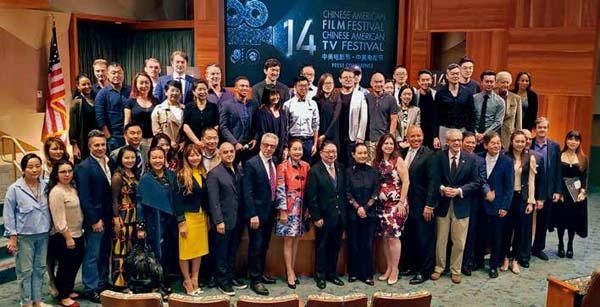Step Past the Trap
2018-01-15byHuZhoumeng
by Hu Zhoumeng
U.S. Vice President Mike Pences Chinabashing speech in early October presented quite a show. In his talk at the Hudson Institute in Washington, D.C., he attacked Chinas domestic and foreign policies concerning trade, the South China Sea, Taiwan, human rights, religion and other issues. The decision to escalate the trade disputes and meddle in Chinas domestic affairs expectedly triggered a strong rebuke from Beijing. Most shockingly, Pence accused China of an “unprecedented effort” to interfere in the U.S. elections. Playing the China card during U.S. election seasons is nothing new, but such dramatic accusations without evidence is a new low.
Framing China as a stiff rival is easy, but does nothing to help the U.S. address its internal problems and escalate friction between the two great powers. The inclination to design the countrys China strategy as confronting a “competitor”is actually snaring the U.S. into the so-called “Thucydides Trap.”
The Thucydides Trap theory claims that a rising power causes fear in an established power which escalates toward war. Harvard political scientist Graham Allison coined the term based on a quote from ancient Greek historian Thucydides in reference to the current ChinaU.S. relations.
The Thucydides Trap seems to increasingly resonate with some American radical strategists alongside the Trump administration. Since Trump began waging a trade war against China, rounds of tariffs have been tit-for-tat at the expense of consumers in both countries.“We will not be intimidated, and we will not stand down.” As Pences aggressive speech promised, the U.S. is taking a far tougher line on China while expanding its fight from trade to other areas.
The moves are exposing the hidden bait of the Thucydides Trap—it is a self-fulfilling prophecy driven by suspicion. If two great powers lack communication, action begets misperception and misperception begets reaction, and then the confrontational mindset gets exacerbated as the loop repeats. That is the ultimate snare of the situation.
“If rivals see their courses as preordained and Thucydidessupposed trap as inescapable, both will gird for what they regard as inevitable,” argued James Holmes, professor of strategy at the Naval War College, in an article for The National Interest. “If they believe they enjoy some say-so over the workings of destiny, then they might find some way to navigate their differences.”
Over the past four decades, the interests of China and the U.S. have become highly interwoven. As Chinese Foreign Minister Wang Yi said, the most important experience gained by the two sides is that only through cooperation can a win-win situation be attained, and confrontation will inevitably lead to a lose-lose scenario.
China always advocates that any problem between China and the U.S. can be resolved through equal and frank dialogue. That is how those two countries have grown together in the global economic system despite differences in political systems and culture.
The politics of two great powers are not destined for tragedy, unless they decide it so. Facing a trap, one can avoid it or fall for it, but there is no excuse if it is fully exposed.